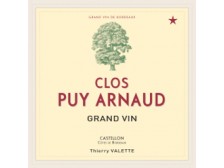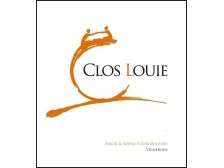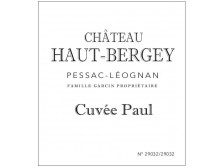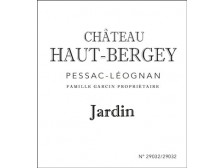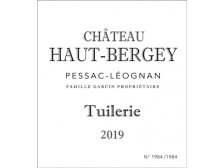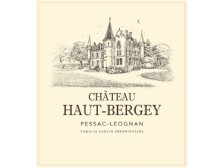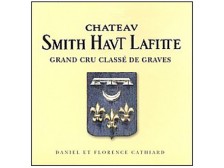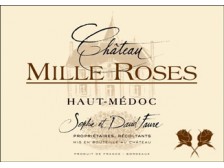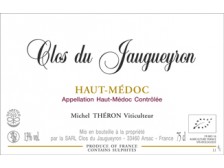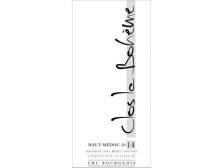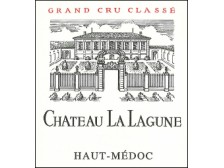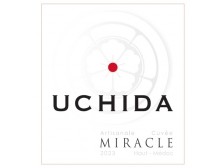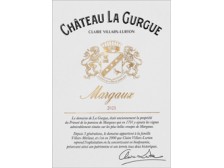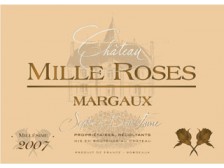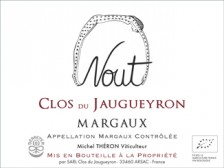Catalog
Other labels exist (Demeter, Biodyvin, Nature et Progrès...). These have more demanding specifications than organic farming but are not recognised by public agencies.
-
With 12 hectares cultivated in biodynamic farming, certified since the 2008 vintage, Clos Puy-Arnaud is one of the great Côtes de Castillon wines that have nothing to envy to neighbouring Saint-Émilion.
Uncompromising, the great wine that has made the estate's reputation is an authentic cuvée, straightforward, deep and made for laying down.The 2022 vintage in the press:
La Revue du Vin de France (September 2025): 92/100 "2022 delivers highly concentrated reds with a ripe, vibrant bouquet: this Grand Vin (70% Merlot, 25% Cabernet Sauvignon) is at the beginning of a radiant life, expressing itself with great frankness of flavour."
En Magnum (May 2025): "Its asteriated limestone terroir (the same as on the Saint-Émilion plateau) lends finesse and freshness to remarkable wines. A brilliant 2022 with a wine that displays aromatic power, a full attack and great energy."
Vinous (A. Galloni - January 2025): 94/100 "The 2022 Clos Puy Arnaud is a dense, extroverted wine. Inky dark fruit, licorice, menthol and cloves are all amplified. Usually ClosPuy Arnaud is more refined, but in 2022, the vintage dominates and speaks loudly. Even so, this is a compelling offering. I look forward to tasting it with bottle age."
J.M Quarin (February 2025): 90/100 "Dark, intense, young colour. Very aromatic nose, with very ripe fruit and truffles. Delicate on the palate, savoury in the middle, with a soft body, the wine finishes sappy and long with a finely chalky tannicity."
Bettane + Desseauve (Guide 2026) : 93/100
More- To keep or to drink:
- Wait 3 to 5 years
- Apogée:
- 2030-2040
- Organic certification:
- 2001
- Alcohol degree:
- 14%
-
With 12 hectares cultivated in biodynamic farming, certified since the 2008 vintage, Clos Puy-Arnaud is one of the great Côtes de Castillon wines that have nothing to envy to neighbouring Saint-Émilion.
Uncompromising, the great wine that has made the estate's reputation is an authentic cuvée, straightforward, deep and made for laying down.The 2021 vintage in the press:
La Revue du Vin de France (Guide 2025): 92/100 “An immediate charm emanates from this wine. This year's low concentration favors an insistent mineral expression, a distinctive feature of this floral, nuanced and energetic wine. A strong, contemporary personality."
Bettane + Desseauve (Guide 2026) : 90/100
More- To keep or to drink:
- Ready to drink
- Apogée:
- 2025-2036
- Organic certification:
- 2001
- Alcohol degree:
- 13.5%
-
With 12 hectares cultivated in biodynamic farming, certified since the 2008 vintage, Clos Puy-Arnaud is one of the great Côtes de Castillon wines that have nothing to envy to neighbouring Saint-Émilion.
Uncompromising, the great wine that has made the estate's reputation is an authentic cuvée, straightforward, deep and made for laying down.The 2020 vintage in the press:
La Revue du Vin de France (Guide 2024) : 94/100 Coup de ♥ “Outstanding concentration of fruit, a relief of invigorating flavors.”
Vinous (Antonio Galloni - December 2022): 95/100 “Clos Puy Arnaud 2020 is one of the great wines of this vintage. Notes of inky red fruit, blood orange, spice and mocha follow one another on the palate. Silky tannins envelop the rich, inviting finish. The saline energy and precision of this wine are simply unreal. This is a wine of extraordinary character and personality.”
More- To keep or to drink:
- Wait 1 to 2 years
- Apogée:
- 2028-2040
- Organic certification:
- 2001
-
Started in 2003, the adventure of Clos Louie is a textbook case: doll's vineyard (2.3 ha) on a beautiful clay-limestone terroir of Castillon, very old vines (150 years old!) mostly Merlot and red tail malbec, careful biodynamic cultivation, double manual sorting during the harvest, little interventionist vinification, gentle maturing in 500-litre demi-muids. A true artist's wine, absent from the guides but that informed amateurs know well.
The 2023 vintage in the press:
La Revue du Vin de France (2026 Guide): 93/100 Coup de ♥ "The 2023 showcases the magnificent maturity of this Merlot with floral nuances and great sincerity of expression. A full-bodied wine with incredible density in dry extracts, all carried by a sensation of great energy. Keep it for another two years, it needs to blend."
More- To keep or to drink:
- Wait 1 to 2 years
- Apogée:
- 2028-2040
- Organic certification:
- 2012
- Alcohol degree:
- 14%
-
Started in 2003, the adventure of Clos Louie is a textbook case: doll's vineyard (2.3 ha) on a beautiful clay-limestone terroir of Castillon, very old vines (150 years old!) mostly Merlot and red tail malbec, careful biodynamic cultivation, double manual sorting during the harvest, little interventionist vinification, gentle maturing in 500-litre demi-muids. A true artist's wine, absent from the guides but that informed amateurs know well.
The 2021 vintage in the press:
La Revue du Vin de France (Guide 2024): 93/100 Coup de ♥ “A delicious interpretation of a contemporary Bordeaux, this 2021 focuses on a frank expression of fruit. Not so commonplace in a vintage where many of the region's wines lack substance.”
More- To keep or to drink:
- Ready to drink
- Apogée:
- 2025-2038
- Organic certification:
- 2012
-
A family estate reawakened in 2011 by the arrival of son Paul Garcin, a former rock musician on the Bordeaux scene. An instant switch to organic and biodynamic viticulture, to produce intuitive, artist's wines that are immediately sapid and have a strong pleasure note. As a deliberate iconoclast, Paul Garcin makes a point of offering different facets to each Haut-Bergey vintage: a classic cuvée vinified and matured in the tradition of Bordeaux's great growths, the more contemporary Cuvée Paul, and single-vineyard cuvées highlighting their respective terroirs.
An approach hailed by the Revue du Vin de France: "A modern vision and the ability to reinvent oneself without betraying: Haut-Bergey symbolises the current vitality of Bordeaux's most historic vineyard".Cuvée Paul is a "modern" Pessac-Léognan, produced using contemporary practices to stay as close to the fruit as possible: partial vinification using whole bunches, and virtually wood-free ageing (concrete egg, amphora and demi-muid).
The 2019 vintage in the press:
La Revue du Vin de France (Guide 2023): 92/100 “the Cuvée Paul radiates the vibrant, weighty, subtly ferrous and spicy fruit that makes it so distinctive”.
More- To keep or to drink:
- Ready to drink
- Apogée:
- 2025-2035
- Organic certification:
- 2015
- Alcohol degree:
- 13.5%
-
A family estate reawakened in 2011 by the arrival of son Paul Garcin, a former rock musician on the Bordeaux scene. An instant switch to organic and biodynamic viticulture, to produce intuitive, artist's wines that are immediately sapid and have a strong pleasure note. As a deliberate iconoclast, Paul Garcin makes a point of offering different facets to each Haut-Bergey vintage: a classic cuvée vinified and matured in the tradition of Bordeaux's great growths, the more contemporary Cuvée Paul, and single-vineyard cuvées highlighting their respective terroirs.
An approach hailed by the Revue du Vin de France: "A modern vision and the ability to reinvent oneself without betraying: Haut-Bergey symbolises the current vitality of Bordeaux's most historic vineyard".Cuvée Jardin is a parcel-based micro-cuvée (named after the eponymous parcel adjoining the Château), 100% Merlot, on a predominantly clay terroir.
More- To keep or to drink:
- Ready to drink
- Apogée:
- 2023-2032
- Organic certification:
- 2015
- Alcohol degree:
- 13.5%
-
A family estate reawakened in 2011 by the arrival of son Paul Garcin, a former rock musician on the Bordeaux scene. An instant switch to organic and biodynamic viticulture, to produce intuitive, artist's wines that are immediately sapid and have a strong pleasure note. As a deliberate iconoclast, Paul Garcin makes a point of offering different facets to each Haut-Bergey vintage: a classic cuvée vinified and matured in the tradition of Bordeaux's great growths, the more contemporary Cuvée Paul, and single-vineyard cuvées highlighting their respective terroirs.
An approach hailed by the Revue du Vin de France: "A modern vision and the ability to reinvent oneself without betraying: Haut-Bergey symbolises the current vitality of Bordeaux's most historic vineyard".Cuvée Tuilerie is a parcel-based micro-cuvée (named after the eponymous parcel ), 100% Cabernet Sauvignon.
Cuvée “Tuilerie” vintage 2019 in the press:
La Revue du Vin de France (Guide 2023): 92/100 “Bloody and smoky, tense.”
More- To keep or to drink:
- Ready to drink
- Apogée:
- 2022-2033
- Organic certification:
- 2015
- Alcohol degree:
- 13.5%
-
A family estate reawakened in 2011 by the arrival of son Paul Garcin, a former rock musician on the Bordeaux scene. An instant switch to organic and biodynamic viticulture, to produce intuitive, artist's wines that are immediately sapid and have a strong pleasure note. As a deliberate iconoclast, Paul Garcin makes a point of offering different facets to each Haut-Bergey vintage: a classic cuvée vinified and matured in the tradition of Bordeaux's great growths, the more contemporary Cuvée Paul, and single-vineyard cuvées highlighting their respective terroirs.
An approach hailed by the Revue du Vin de France: "A modern vision and the ability to reinvent oneself without betraying: Haut-Bergey symbolises the current vitality of Bordeaux's most historic vineyard".More- To keep or to drink:
- Ready to drink
- Apogée:
- 2026-2034
- Organic certification:
- 2015
- Alcohol degree:
- 13.5%
- Grape varieties:
- 53% Cabernet sauvignon, 27% Cabernet franc, 12% Merlot, 8% Petit verdot
-
A family estate reawakened in 2011 by the arrival of son Paul Garcin, a former rock musician on the Bordeaux scene. An instant switch to organic and biodynamic viticulture, to produce intuitive, artist's wines that are immediately sapid and have a strong pleasure note. As a deliberate iconoclast, Paul Garcin makes a point of offering different facets to each Haut-Bergey vintage: a classic cuvée vinified and matured in the tradition of Bordeaux's great growths, the more contemporary Cuvée Paul, and single-vineyard cuvées highlighting their respective terroirs.
An approach hailed by the Revue du Vin de France: "A modern vision and the ability to reinvent oneself without betraying: Haut-Bergey symbolises the current vitality of Bordeaux's most historic vineyard".The 2022 vintage in the press:
La Revue du Vin de France (Guide 2026): 93/100 " ‘Classic’ in its structure and the way the fruit is skilfully enhanced by the wood, Haut-Bergey nevertheless offers the balance, nuance and intelligence of fruit that distinguish the estate's wines. This wine is already very expressive, articulate and harmonious, with a responsive body stretched by lively, flavourful tannins."
Bettane + Desseauve (Guide 2026) : 91/100
More- To keep or to drink:
- Ready to drink
- Apogée:
- 2025-2035
- Organic certification:
- 2015
-
A family estate reawakened in 2011 by the arrival of son Paul Garcin, a former rock musician on the Bordeaux scene. An instant switch to organic and biodynamic viticulture, to produce intuitive, artist's wines that are immediately sapid and have a strong pleasure note. As a deliberate iconoclast, Paul Garcin makes a point of offering different facets to each Haut-Bergey vintage: a classic cuvée vinified and matured in the tradition of Bordeaux's great growths, the more contemporary Cuvée Paul, and single-vineyard cuvées highlighting their respective terroirs.
An approach hailed by the Revue du Vin de France: "A modern vision and the ability to reinvent oneself without betraying: Haut-Bergey symbolises the current vitality of Bordeaux's most historic vineyard".The 2020 vintage in the press:
Le Point (May 2024): 14.5/20 “Pure fruit, freshness, fresh, juicy, spicy palate, slightly marked tannins, good substance.”
Bettane et Desseauve (Guide 2024): 91/100More- To keep or to drink:
- Ready to drink
- Apogée:
- 2025-2033
- Organic certification:
- 2015
- Alcohol degree:
- 13.5%
-
Virtually abandoned in 1993 when Mr and Mrs Cathiard bought it, Smith Haut Lafitte now shines brightly among the elite of Bordeaux's left bank. The progress made is admirable, as the Cathiards spared no effort: restoring the vineyard, building a vat room and an underground cellar, introducing state-of-the-art equipment, converting to organic farming... The latest vintages demonstrate increased structural finesse and aromatic delicacy. Bravo!
The 2023 vintage in the press:
Vinous (N. Martin - February 2026): 96/100 "The 2023 Smith Haut Lafitte, which has more Cabernet than usual due to the mildew-affected Merlot and the quality of the Cabernet itself. It has a really lovely bouquet that makes an immediate impact: blackberry and boysenberry fruit, subtle hints of violet and cassis. Very pure and well-defined. The palate is medium-bodied with silky tannins, perfectly pitched acidity, very harmonious and poised, with a gradual build toward the finish. This is one of the best reds that you will find in the 2023 vintage in Bordeaux — superb."
More- To keep or to drink:
- Wait 5 to 10 years
- Apogée:
- 2032-2045
- Organic certification:
- 2019
- Alcohol degree:
- 14.5%
- Grape varieties:
- 70% Cabernet sauvignon, 23% Merlot, 6% Cabernet franc, 1% Petit verdot
-
Virtually abandoned in 1993 when Mr and Mrs Cathiard bought it, Smith Haut Lafitte now shines brightly among the elite of Bordeaux's left bank. The progress made is admirable, as the Cathiards spared no effort: restoring the vineyard, building a vat room and an underground cellar, introducing state-of-the-art equipment, converting to organic farming... The latest vintages demonstrate increased structural finesse and aromatic delicacy. Bravo!
The 2022 vintage in the press:
Vinous (A. Galloni - January 2025): 97+/100 "The 2022 Smith Haut Lafitte is silky, elegant and nuanced. It's all there. A wine of precision and class, the 2022 is so impressive. Refined, supple tannins wrap around a core of blue/purplish fruit, lavender, espresso and mocha. I find the 2022 a bit buttoned up today, but that is probably a very good thing for its long-term prospects. I look forward to seeing it age."
J-M Quarin (February 2025): 97/100 "Very intense colour. Very aromatic nose, fine, pure and rich. A hint of sunshine, followed by black fruit enhanced by spice and fine oak. Delicate on the palate, with a classy feel, the wine rises slowly on the finish. The finish is powerful, a little firm but also very tasty and long."
Bettane + Desseauve (Guide 2026) : 97/100
More- To keep or to drink:
- Wait 3 to 5 years
- Apogée:
- 2030-2045
- Organic certification:
- 2019
- Alcohol degree:
- 14.5%
-
Virtually abandoned in 1993 when Mr and Mrs Cathiard bought it, Smith Haut Lafitte now shines brightly among the elite of Bordeaux's left bank. The progress made is admirable, as the Cathiards spared no effort: restoring the vineyard, building a vat room and an underground cellar, introducing state-of-the-art equipment, converting to organic farming... The latest vintages demonstrate increased structural finesse and aromatic delicacy. Bravo!
The 2022 vintage in the press:
Vinous (A. Galloni - January 2025): 97+/100 "The 2022 Smith Haut Lafitte is silky, elegant and nuanced. It's all there. A wine of precision and class, the 2022 is so impressive. Refined, supple tannins wrap around a core of blue/purplish fruit, lavender, espresso and mocha. I find the 2022 a bit buttoned up today, but that is probably a very good thing for its long-term prospects. I look forward to seeing it age."
J-M Quarin (February 2025): 97/100 "Very intense colour. Very aromatic nose, fine, pure and rich. A hint of sunshine, followed by black fruit enhanced by spice and fine oak. Delicate on the palate, with a classy feel, the wine rises slowly on the finish. The finish is powerful, a little firm but also very tasty and long."
Bettane + Desseauve (Guide 2026) : 97/100
More- To keep or to drink:
- Wait 5 to 10 years
- Apogée:
- 2034-2055
- Organic certification:
- 2019
- Alcohol degree:
- 14.5%
-
Virtually abandoned in 1993 when Mr and Mrs Cathiard bought it, Smith Haut Lafitte now shines brightly among the elite of Bordeaux's left bank. The progress made is admirable, as the Cathiards spared no effort: restoring the vineyard, building a vat room and an underground cellar, introducing state-of-the-art equipment, converting to organic farming... The latest vintages demonstrate increased structural finesse and aromatic delicacy. Bravo!
The 2021 vintage in the press:
J-M Quarin (February 2024): 95/100 “Ample on the attack, full on the mid-palate, the wine moves forward on a melting body with a little more nuance if tasted just decanted. Good length, with light tannins”.
Vinous (A. Galloni - December 2023): 96/100 “The 2021 Smith haut Lafitte is an engaging, dynamic wine. Gravel, menthol, licorice, mocha and spice are all beautifully delineated. A wine of energy and focus, the 2021 is absolutely enthralling-medium in body, refined and super-impressive.”
More- To keep or to drink:
- Wait 1 to 2 years
- Apogée:
- 2028-2041
- Organic certification:
- 2019
- Alcohol degree:
- 13.5%
-
Regardless of its production in the Margaux appellation, Mille Roses also produces an Haut-Médoc on 4 parcels, 5.5 ha, around the Château. 50% cabernet sauvignon, 40% merlot and 10% petit verdot giving a dashing, accessible and silky wine, finely wooded (25% new oak). And of course, driven organically since 2010.
More- To keep or to drink:
- Ready to drink
- Apogée:
- 2025-2038
- Alcohol degree:
- 13.5%
-
Straddling the Margaux and Haut-Médoc appellations, Clos du Jaugueyron is a mini estate (8 ha in total) in the southern Médoc run like a vegetable garden by Mr. and Mrs. Théron. Quoted as "a safe address" by M. Bettane, and as "one of the most interesting properties in the Médoc at the moment" by the Revue du Vin de France.
More- To keep or to drink:
- Ready to drink
- Apogée:
- 2025-2033
- Organic certification:
- 2012
- Alcohol degree:
- 13%
-
Straddling the Margaux and Haut-Médoc appellations, Clos du Jaugueyron is a mini estate (8 ha in total) in the southern Médoc run like a vegetable garden by Mr. and Mrs. Théron. Quoted as "a safe address" by M. Bettane, and as "one of the most interesting properties in the Médoc at the moment" by the Revue du Vin de France.
More- To keep or to drink:
- Ready to drink
- Apogée:
- 2022-2032
- Organic certification:
- 2012
-
The smallest cru bourgeois (3.9 ha) in the Médoc and one of the first certified organic (in 2011), run by Mrs Nadalié, oenologist and daughter of the Nadalié cooperage, which supplies many of the great Bordeaux wines. Located in the south of the Médoc between La Lagune and the Margaux appellation, 65% Cabernet Sauvignon and 35% Merlot, it is difficult not to like its Clos La Bohême with its floral nose (very peony) on a sweet, tender, fresh palate and always tasty tannins.
The 2020 vintage in the press:
La Revue du Vin de France (March 2025): 93/100 "Aged on the lees for twenty months, the wine is bursting with sensual, luscious, rich and flavoursome substance. The black fruit, floral notes and minerality add to the deliciousness."
More- To keep or to drink:
- Ready to drink
- Apogée:
- 2025-2035
- Organic certification:
- 2011
-
The smallest cru bourgeois (3.9 ha) in the Médoc and one of the first certified organic (in 2011), run by Mrs Nadalié, oenologist and daughter of the Nadalié cooperage, which supplies many of the great Bordeaux wines. Located in the south of the Médoc between La Lagune and the Margaux appellation, 65% Cabernet Sauvignon and 35% Merlot, it is difficult not to like its Clos La Bohême with its floral nose (very peony) on a sweet, tender, fresh palate and always tasty tannins.
More- To keep or to drink:
- Ready to drink
- Apogée:
- 2023-2030
- Organic certification:
- 2011
- Alcohol degree:
- 14%
-
Not really Margaux even if it is a neighbour, not really Haut-Médoc as it is situated in the extreme south of the Médoc on the outskirts of Bordeaux, La Lagune is a special vintage in the 1855 classification, marvellously combining finesse and sweet smoothness.
The 2020 vintage in the press:
La Revue du Vin de France (Guide 2024): 94/100 “In 2020, this vintage delivers an elegant wine, with supple substance and a lovely depth. It is long-lasting, with fruity flavors and silky tannins. It should be perfect for drinking in the next ten years or so.”
Vinous (N.Martin - January 2024): 93/100 “The 2020 La Lagune has a lovely bouquet of pure, very perfumed black fruit with violet petals and undergrowth. The oak is very well integrated. The palate is medium-bodied with fine tannins, classic in style and harmonious, building notes of cedar, black pepper and tobacco toward the finish. Excellent.”
More- To keep or to drink:
- Wait 1 to 2 years
- Apogée:
- 2027-2038
- Organic certification:
- 2016
- Alcohol degree:
- 14%
-
Not really Margaux even if it is a neighbour, not really Haut-Médoc as it is situated in the extreme south of the Médoc on the outskirts of Bordeaux, La Lagune is a special vintage in the 1855 classification, marvellously combining finesse and sweet smoothness.
The 2019 vintage in the press:
Vinous (N. Martin - January 2023): 95/100 “The 2019 La Lagune offers exquisite transparency on the nose - one of the most terroir-expressive Pessac-Léognan wines this vintage. The palate is medium-bodied with fine-grain tannins, taut and fresh, quite saline with a very integrated and poised finish that lingers in the mouth. Wonderful - could this be the best La Lagune in years? ”
La Revue du Vin de France (September 2022): 92/100 “The wine shows itself to be quite tender and supple, with roundness and melted tannins. A half-bodied La Lagune, already very approachable and balanced.”
J-M Quarin (March 2022): 91/100 “The wine caresses the palate, tasty, with a touch of vivacity in the persistence.”
More- To keep or to drink:
- Ready to drink
- Apogée:
- 2025-2035
- Organic certification:
- 2016
- Alcohol degree:
- 14.5%
-
Not really Margaux even if it is a neighbour, not really Haut-Médoc as it is situated in the extreme south of the Médoc on the outskirts of Bordeaux, La Lagune is a special vintage in the 1855 classification, marvellously combining finesse and sweet smoothness.
More- To keep or to drink:
- Ready to drink
- Apogée:
- 2024-2042
- Organic certification:
- 2016
- Alcohol degree:
- 13.5%
-
The Médoc has its local appellations, its châteaux, its terraces... and its Japanese winemaker. Arriving in 2010, Osamu Uchida settled in the commune of Cissac-Médoc (bordering Pauillac and Saint-Estèphe) with the aim of producing wines that combine Japanese perfectionism with Bordeaux oenological know-how. On his micro-vineyard of less than 3 ha, Osamu Uchida produces several cuvées, including Miracle, 100% Cabernet-Sauvignon, 20% de-stemmed by hand, aged in 500-l barrels, bottled unfined and unfiltered, with a minimum of SO2. His 2023 is fresh, fruity (pure blackberry juice), moderately tannic and slightly acidic, a Médoc with good length, as delicate as it is original.
More- To keep or to drink:
- Wait 1 to 2 years
- Apogée:
- 2028-2038
- Alcohol degree:
- 11.5%
-
Totally surrounded by classified growths, La Gurgue enjoys a privileged terroir, and the attentive care of Mrs Villars (also owner of Ferrière, classified growth of Margaux, and Haut-Bages-Libéral, classified growth of Pauillac), voted Winemaker of the Year 2024 by La Revue du Vin de France. Certainly the best quality/price/pleasure ratio in the appellation.
The 2023 vintage in the press:
Vinous (N. Martin - February 2026): 89/100 "The 2023 La Gurgue has an attractive bouquet with blackberry and violet fruit, just a touch of brown spices. The palate is medium-bodied with slightly hard tannins on the entry. Fine acidity, quite a solid Margaux that just needs to loosen up on the finish."
La Revue du Vin de France (Guide 2026): 93/100 "The 2023 is delicious, with a great natural fruitiness preserved by skilful ageing that combines different containers and different methods. The wine is well-balanced and supple, revealing a texture of great delicacy. Already a very pleasant bottle."
More- To keep or to drink:
- Wait 1 to 2 years
- Apogée:
- 2027-2035
- Organic certification:
- 2016
-
Totally surrounded by classified growths, La Gurgue enjoys a privileged terroir, and the attentive care of Mrs Villars (also owner of Ferrière, classified growth of Margaux, and Haut-Bages-Libéral, classified growth of Pauillac), voted Winemaker of the Year 2024 by La Revue du Vin de France. Certainly the best quality/price/pleasure ratio in the appellation.
The 2022 vintage in the press:
La Revue du Vin de France (December 2025): 92/100 "The wines from this small Margaux estate, covering barely 10 hectares and run by Claire Villars-Lurton, are well worth discovering. She applies the same philosophy here as she does to her classified growths, Ferrière and Haut-Bages Libéral. The result is a very elegant wine, carried by a delicate texture and beautiful fruit freshness that already make it very accessible."
Vinous (A. Galloni - January 2025): 91/100 "The 2022 La Gurgue offers an intriguing mix of dense, pliant fruit and lifted aromatics that add notable flair. Crushed flowers, mint, spice, blood orange and white pepper are all lifted in the glass. The blend is 53% Cabernet Sauvignon, 30% merlot and 17% Petit Verdot, with the high amount of Petit Verdot lending palpable aromatic presence and an exotic quality. La Gurgue is super distinctive in 2022. I would give this a good bit of aeration, as there is a bit of reduction today. This was raised in once-used barrels, concrete ovals, new oak and amphorae."
More- To keep or to drink:
- Ready to drink
- Apogée:
- 2026-2035
- Organic certification:
- 2016
- Alcohol degree:
- 13%
-
Totally surrounded by classified growths, La Gurgue enjoys a privileged terroir, and the attentive care of Mrs Villars (also owner of Ferrière, classified growth of Margaux, and Haut-Bages-Libéral, classified growth of Pauillac), voted Winemaker of the Year 2024 by La Revue du Vin de France. Certainly the best quality/price/pleasure ratio in the appellation.
The 2021 vintage in the press:
La Revue du Vin de France (Guide 2025): 92/100 “This delicate wine includes nearly 20% Petit Verdot in its blend. It is suave on the palate, with a fine grain and subtle, well-integrated tannins, highlighted by the fine ageing, partly in ovoid concrete vats”.
Vinous (A. Galloni - December 2023): 91/100 “The 2021 La Gurgue is a bold, juicy Margaux endowed with tons of fruit presence and plenty of immediacy. Succulent dark red cherry, blood orange, spice, mint and tobacco all meld together. La gurgue is a fine choice for drinking now and over the next decade or so.”
More- To keep or to drink:
- Ready to drink
- Apogée:
- 2024-2032
- Organic certification:
- 2016
- Alcohol degree:
- 13%
-
Small bourgeois cru of 4 ha, between Giscours, Monbrison and d'Angludet. Although organically farmed - since 2010 - and producing just over 1000 cases per year, Mille Roses remains among the least expensive of the Margaux appellation, and yet one of the most endearing.
More- To keep or to drink:
- Ready to drink
- Apogée:
- 2025-2035
- Alcohol degree:
- 12.5%
-
Small bourgeois cru of 4 ha, between Giscours, Monbrison and d'Angludet. Although organically farmed - since 2010 - and producing just over 1000 cases per year, Mille Roses remains among the least expensive of the Margaux appellation, and yet one of the most endearing.
More- To keep or to drink:
- Ready to drink
- Apogée:
- 2026-2038
- Alcohol degree:
- 13%
-
Straddling the Margaux and Haut-Médoc appellations, Clos du Jaugueyron is a mini estate (8 ha in total) in the southern Médoc run like a vegetable garden by Mr. and Mrs. Théron. With attention to the smallest detail, they produce true Margaux, as dense and spicy as they are slender. Quoted as "a safe address" by M. Bettane, and as "one of the most interesting properties in the Médoc at the moment" by the Revue du Vin de France.
The "Nout" cuvée, which is more quickly accessible, has a majority of Merlot (55%), while the Grand Vin gives pride of place to Cabernet Sauvignon (65%).
The Nout cuvée was cited among the "Bordeaux of legend" in the Revue du Vin de France (May 2020).More- To keep or to drink:
- Ready to drink
- Apogée:
- 2026-2035
- Organic certification:
- 2012
- Alcohol degree:
- 13%


